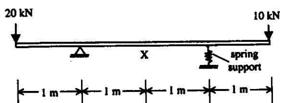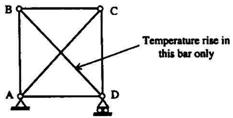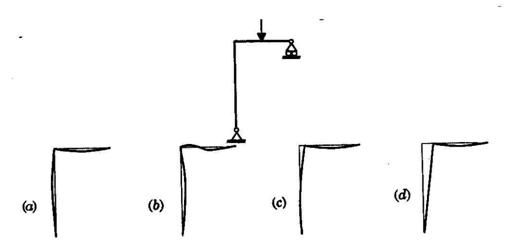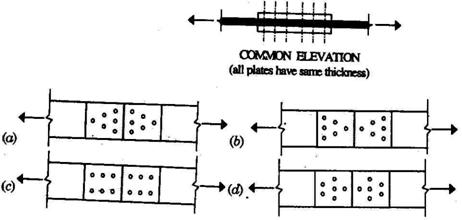GATE-2001 civil Engg paper
Printed From: One Stop GATE
Category: GATE Previous Years Test Papers - Discuss Here
Forum Name: ME Papers
Forum Discription: ME Previous Year GATE Papers to can discussed here.
URL: http://forum.onestopgate.com/forum_posts.asp?TID=61
Printed Date: 15Sep2025 at 9:06am
Topic: GATE-2001 civil Engg paper
Posted By: Neha Agarwal
Subject: GATE-2001 civil Engg paper
Date Posted: 05Jan2007 at 4:24pm
|
CE.l. This question consists of TWENTY FIVE sub-questions (1.1-1.25) of ONE mark each. For each of these sub-questions four possible answers (A, B, C and D) are given, out of which only one is correct. Answer each sub-question by darkening the appropriate bubble on the OBJECTIVE RESPONSE SHEET (ORS) using a soft HB pencil. Do not use the ORS for any rough work. You may use the Answer Book for any rough work, if needed. (25 x 1 = 25)
1.1. The number of boundary conditions required to solve the following
differential equation is
(a) 2 (c) 4 (b) 0 (d) 1 1.2. The value of the integral is I =
(a)
(b)
(c)
(d)
1.3. The limit of the following series as x approaches
(a)
(c)
1.4. The degree of static indeterminacy, N s’ and the degree of kinematic indeterminacy, N k’ for the plane frame shown below, assuming axial deformations to be negligible, are given by
(b) N s = 6 and N k = 6 (c) N s = 4 and N k = 6 (d) N s = 4 and N k = 4 1.5. The bending moment (in kNm units) at the mid-span location X in the beam
with overhangs shown below-is equal to:
(a) 0 (b) - 1 0 (c) - 15 (d) -20
1.6. Identify the FALSE statement from the following, pertaining to the effects due to a temperature rise D T in the bar BD alone in the plane truss shown below:
(a) No reactions develop at supports A and D. (b) The bar BD will be subject to a tensile force. (c) The bar AC will be subject to a compressive force. (d) The bar BC will be subject to a tensile force.
1.7. Identify the correct deflection diagram corresponding to the loading in
the plane frame shown below:
1.8. Identify the FALSE statement from the following, pertaining to the methods of structural analysis:
1.9. Identify the FALSE statement from the following, pertaining to the design of concrete structures:
1.10. Identify the most efficient butt joint (with double cover plates) for a plate in tension from the patterns (plan views) shown below, each comprising 6 identical bolts with the same pitch and gauge:
1.11. The following two statements are made with respect to different sand samples having the same relative density. Identify if they are TRUE or FALSE. I. Poorly graded sands will have lower friction angle than the well graded sands. II. The particle size has no influence on the friction angle of sand.
(a) II is TRUE but I is FALSE (b) Both are FALSE statements (c) Both are TRUE statements. (d) I is TRUE but II is false.
1.12. The following two statements are made with reference to the calculation of net bearing capacity of a footing in pure clay soil ( f = 0) using Terzaghi's bearing capacity theory. Identify if they are TRUE or FALSE.
I. Increase in footing width will result in increase in bearing capacity. II. Increase in depth of foundation will result in higher bearing capacity.
(a) Both statements are TRUE (b) Both statements are FALSE (c) I is TRUE but II is FALSE (d) I is FALSE but II is TRUE
1.13. The width and depth of a footing are 2 and 1.5 m respectively. The water table at the site is at a depth of 3 m below the ground level. The water table correction factor for the calculation of the bearing capacity of soil is (a) 0.875 (b) 1.000 (c) 0.925 (d) 0.500
1.14. The void ratio and specific gravity of a soil are 0.65 and 2.72 respectively. The degree of saturation (in percent) corresponding to water content of 20% is (a) 65.3 (b) 20.9 (c) 83.7 (d) 54.4
1.15. With respect to a c- f soil in an infinite slope, identify if the following two statements are TRUE or FALSE. I. The stable slope angle can be greater than f II: The factor of safety of the slope does not depend on the height soil in the slope.
(a) Both statements are FALSE (b) I is TRUE but II is FALSE (c) I is FALSE but II is TRUE (d) Both statements are TRUE ------------- For more papers visit: http://onestopgate.com/gate-preparation// - http://onestopgate.com/gate-preparation// |

 (a) N s = 6 and N k = 11
(a) N s = 6 and N k = 11 


